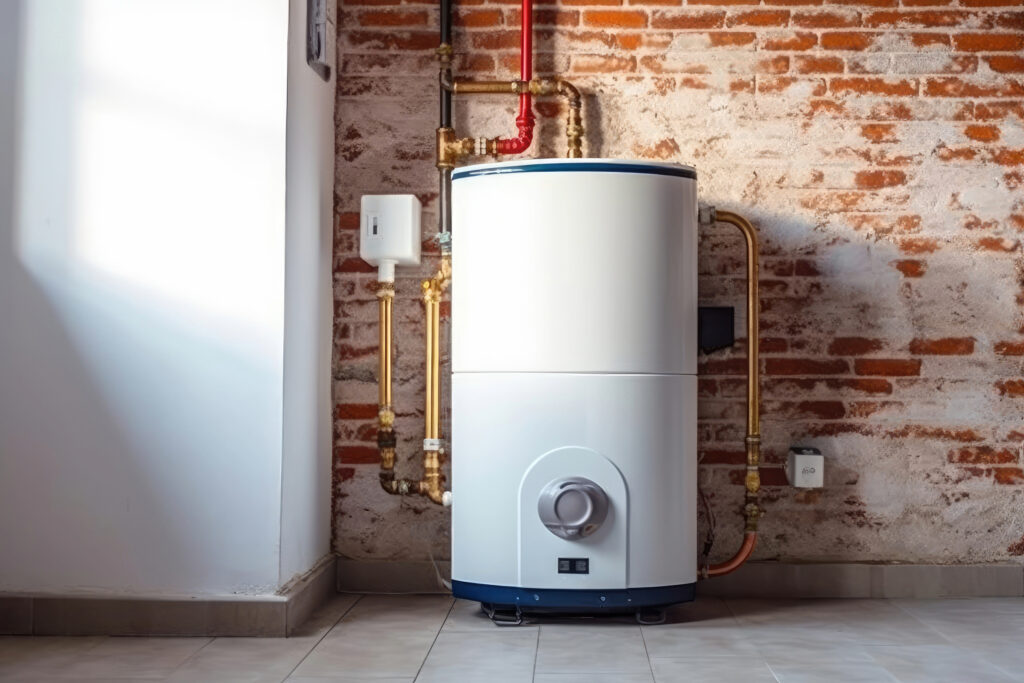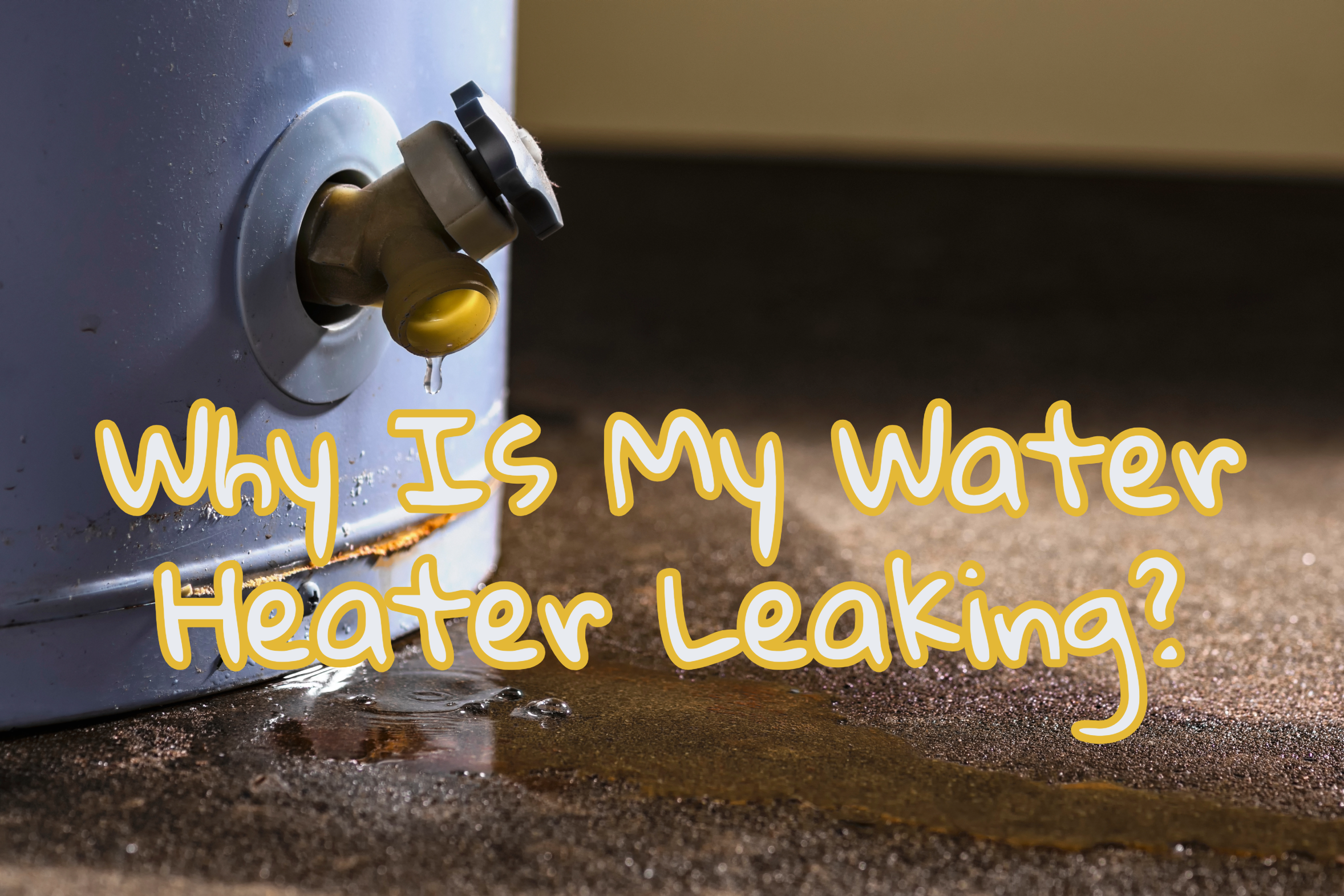A leaking water heater can be a significant concern for homeowners, not only increasing utility bills but also potentially causing extensive water damage to your home and unit. Your local experts (yours truly) at Upper Arlington Plumbing & Drain invite you to gain a deeper understanding of the causes of water heater leaks and the available solutions.
Before we proceed, please be advised: It is essential to power down your unit before performing any troubleshooting tasks. Your safety is our top priority.

Have You Checked the Water Inlet and Outlet Connections?
A common cause of water heater leaks is an insecure connection on the cold or hot water inlet and outlet pipes. These connections may become unstable due to fluctuating temperatures and consistent use. Consequently, when these connections are not secure, leakage may occur, which can manifest as a small puddle around the heater base or a slow drip from the pipes.
To determine if these connections are the issue, examine them at the top of your water heater. If water is present around these areas, they could be the culprits. A simple fix might involve tightening them with a wrench but make sur not to over-tighten as this can cause additional damage.
Have You Checked the Pressure Relief Valve?
Another possible issue is a faulty pressure relief valve, which is designed to discharge excess pressure within the tank. If it malfunctions, it can result in water leakage. A malfunctioning pressure relief valve could create a hazardous situation, as it might indicate that the tank is under excessive pressure, posing a risk of bursting.
To determine if this valve is malfunctioning, gently lift the lever. If water emerges, the valve is operational. However, if it continues to leak even after you release it, replacement may be necessary.
Have You Checked the Temperature & Pressure Relief Valve?
The Temperature & Pressure (T&P) relief valve, similar to the pressure relief valve, can also result in water heater leaks if it is defective or loose. A leaking T&P valve may indicate that the water temperature is excessively high or that the tank pressure is too elevated. Both situations are potentially hazardous and require immediate attention.
If you suspect the T&P valve is the issue, inspect for any water around the valve. If it appears damp, a replacement may be required.
Have You Checked the Inlet Valve?
The inlet valve, responsible for directing cold water into the water heater, could also be a potential source of leaks if it is damaged or improperly sealed. A faulty inlet valve often leads to water pooling around the base of the heater. You may observe a continuous drip or a small stream of water originating from the valve area.
To address this issue, inspect the inlet valve for any signs of damage or wear. It may be necessary to tighten the valve or replace it.

Have You Called a Professional Plumber?
If you have exhausted all the troubleshooting steps above and your water heater continues to leak, it is advisable to contact a professional plumber. Some issues may be too intricate or hazardous for DIY fixes. A qualified plumber can accurately diagnose the problem and provide a sustainable solution, whether it involves replacing parts or recommending a new water heater.
Neglecting a dripping water heater can result in significant stress and damage if not promptly addressed. By understanding common causes and following troubleshooting steps, many issues can be identified and resolved independently. However, if the problem persists, please do not hesitate to contact us. Ensuring the optimal functioning of your water heater will help prevent more serious complications in the future. Proactive maintenance is essential!
Our team of professionals is consistently prepared to assist in maintaining the safety and comfort of your home. Call Upper Arlington Plumbing & Drain today at (614) 363-1924, or schedule an appointment by clicking here!




